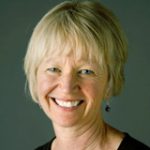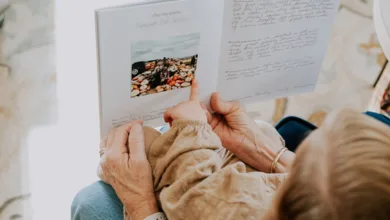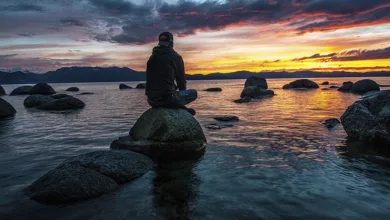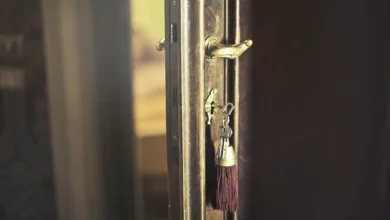Dr. Eduardo Sanchez: A Heart for Healthy Living
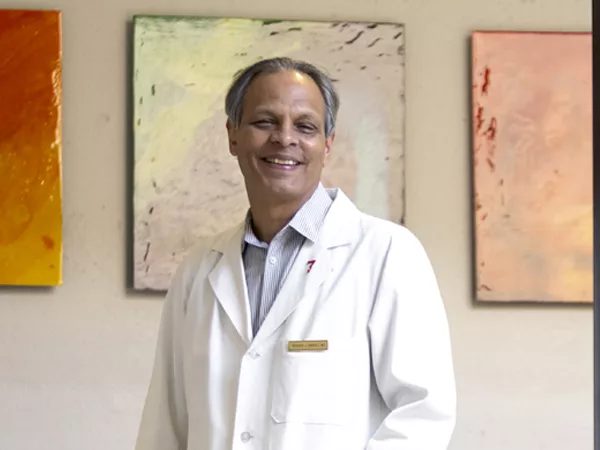
Photos by Kim Leeson ~
Dr. Eduardo Sanchez was out for a jog near his home when he happened to glance upward. He noticed “a slight deviation” of what he’d expect to see in the trees: Two round-top cylindrical shapes amid the leaves.
So, he did what he suggested we all do on occasion: He reveled in a moment of wonder.
“Those shapes were two baby owls,” Sanchez, Chief Medical Officer for Prevention at the American Heart Association, said. “Seeing them in that moment was magical. I only had a few seconds to take it all in before they flew away. But I was able to capture it all in my mind.”
Such, he said, “is a manifestation of the value of being outside and an example of the notion of mindfulness. It was the mindfulness with which I was running that allowed me to see the owls. I was outside, out in the fresh air, and that’s what I got to behold. It was fantastic.”
A family medicine doctor by training, Dr. Sanchez is a man of science.
He knows the statistics: Heart disease, cardiovascular disease, and stroke take the lives of close to 850,000 people in the United States every year.
And yet, “death from heart disease can be prevented at best,” he said. “At worst, it can be delayed.”
How? By keeping our blood pressure, cholesterol, and weight in check. By eating healthy foods and not smoking.
And, of course, by making movement part of every day.
“I’m a person who loves going on a nice hike on a trail,” he said. “But I also just love being outdoors, seeing the sky, seeing the sun, seeing those things which are growing all around me.”
It’s a choreography of movement and wonder, really: Be mindful as you take a walk or go for a swim or get ankle-deep in cuttings and dirt as you garden. You’re benefiting your heart as well as your soul.
“In my mind, movement is the silver bullet,” Dr. Sanchez said. “Better cardiovascular health will improve many other aspects of your health, period. It not only can help prevent or control diabetes and help prevent some kinds of cancer, but it also leads to a slower decline in cognition. Depressive mood can be eliminated or reduced. You’ll be a better person. You’ll be happier. I’m a believer that positivity matters.”
Walking just 10 minutes with someone else also provides a chance to connect, he continued, which is “great for your mental wellbeing and the person you connect with.”
An added incentive: If almost all persons in the US walked an extra 10 minutes each day, more than 111,000 deaths could be prevented, according to a study recently published in JAMA Internal Medicine.
The Physical Activity Guidelines for Americans recommends everyone get at least 150 minutes of moderate intensity movement a day. Anything counts toward that number, Dr. Sanchez said. Every minute of activity adds to better health.
“If you can do 10, that’s fantastic,” he said. “Twenty is super fantastic, and 30 is super-duper fantastic.”
That’s always been true, but perhaps never more than in the past two years. Everyone’s life has changed. Whether you’re a healthcare worker, a teacher, a parent, a student — or anyone sharing this sweet earth — the pandemic has been tough.
“This is all about de-stressing at a time we’re all trying to figure out a way to reduce the stress of living through a pandemic,” Dr. Sanchez said.
Dr. Sanchez used Covid to improve work-life balance.
Tough as these past few years have been, Covid has helped him appreciate, strive for, and better achieve a balance between his hectic work-life and his cherished personal time. Dr. Sanchez used to travel a lot, but Covid halted that.
Even now, though travel restrictions are easing, he believes he will do less work-related travel in the future. Though he misses interacting with colleagues around the country, he said being home more than compensates for that.
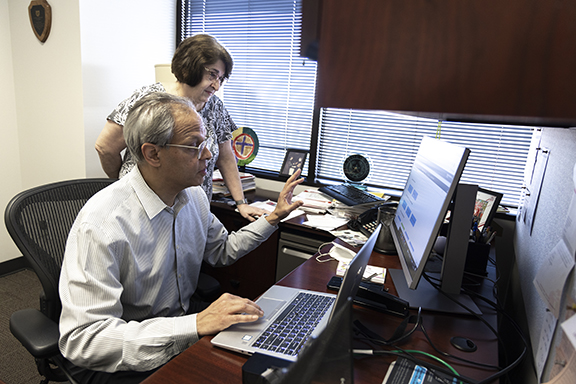
“Do I have Zoom fatigue? Everyone has Zoom fatigue,” he said. “But I know every day when I’m doing those meetings, I’ll have dinner at home with my wife, I’ll wake up in my own bed. All of that has tremendous value for me. Preparing a meal, having a meal, what happens after a meal — we’re much more intentional about that time.”
He and his wife Katherine, an associate professor and the associate dean for research at the University of Texas at Arlington School of Social Work, share cooking duties. In truth, he said, Katherine does more cooking; he, more cleaning. Following his own advice, they’ve been mindfully moving toward a healthier diet for the last decade.
“We’re not vegan or vegetarian, but we eat plant-based meals several times a week,” he said. “There are some weeks I don’t eat any meat at all.”
Burt Dr. Sanchez admitted he still sometimes goes to barbeque joints.
“I grew up in Texas,” he said. “And I love barbecue.”
The pandemic also strengthened ties with those he loves.
“We’ve come to realize that reaching out to loved ones — my mother, friends I haven’t seen in a while — is one of the ways I’ve grown my work-life balance,” Dr. Sanchez said. “When I was really busy pre-Covid, those things were going by the wayside. I wasn’t nurturing relationships like I can now.”
In addition, he said he and Katherine, who used to run together, now treasure their walks even more.
“We couldn’t talk as much as we do now,” he said. “We can have conversations that are just good conversations to be had.”
The two met at a federally qualified health center (facilities offering care for people who either have no insurance or are underinsured). He was working as a family physician; she, as a social worker.
They married and now have four children, two of whom they share: A teacher of English in Spain, an internal medicine resident at UT Southwestern, a graduate student in environmental studies, and a college freshman studying public health.
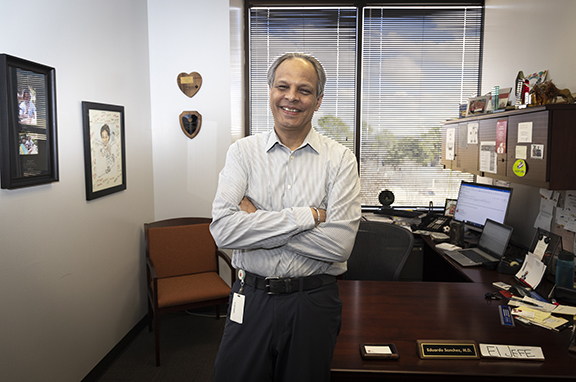
The Path to the American Heart Association.
When Dr. Sanchez was in medical school at UT Southwestern, and later in his residency, he began thinking about public health himself.
“It occurred to me, as a physician, taking care of people one at a time is an awesome privilege,” he said. “But you’re only able to get so much done, seeing 20 to 25 people a day over a lifetime. I began thinking about how to amplify what I had learned to serve populations through public health. That ended up altering the trajectory of my career.”
Two decades ago, he worked as a volunteer on initiatives with the American Heart Association revolving around Hispanic health issues in Austin and continued supporting AHA efforts nationally. He joined the AHA as staff nine years ago.
He credits his father — who was an anesthesiologist in Corpus Christi and the first of his family to go to college, much less medical school — with honing his passion for helping all parts of the population.
“My dad worked in the county hospital and took care of people who had no insurance, those who were quite poor,” Dr. Sanchez, whose brother is a physician in New Jersey, said.
Dr. Sanchez recalled a time his father came home with bags of oranges. He asked his father where the oranges came from.
“That’s what Mr. Garcia had to pay me, and that’s okay,” Dr. Sanchez’s father had said.
Dr. Sanchez continued: “That aspect of charity and understanding — without knowing what I was learning — showed me how context, a person’s socioeconomic reality, is very important in understanding people’s health and how to address their health problems.”
Which brings back the effect Covid has had.
“It’s been a setback on the one hand, but an eye-opener on the other,” he said. “Covid exposed the weaknesses in our public health and healthcare systems. There’s a fair amount of disproportionality of who’s been adversely affected. Early in the pandemic, one group of people disproportionately hurt by Covid were people who did essential work; the mere fact of their interaction with others while doing their work increased their risk of being infected.”
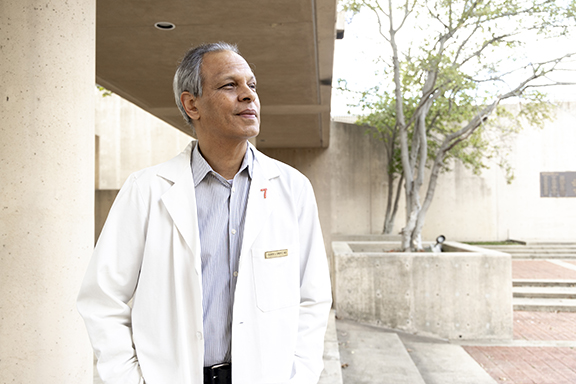
Between Covid, heart health, and their respective manifestations, there’s a lot to be reckoned with.
But Dr. Sanchez quoted the late Swedish physician, Hans Rosling: “I’m not an optimist. I’m a very serious possible-ist.”
He mentioned the theme of American Heart Month, which was in February: Reclaim your rhythm.
“It comes back to some things we were talking about earlier, the notion of taking back control of a life to be enjoyed — whether that’s a 10-minute walk with your spouse or friend, or a walk in the wild by yourself, or eating healthfully with people you love,” Dr. Sanchez said. “It’s never ever too late to make a change to improve your physical health or mental well-being.”


